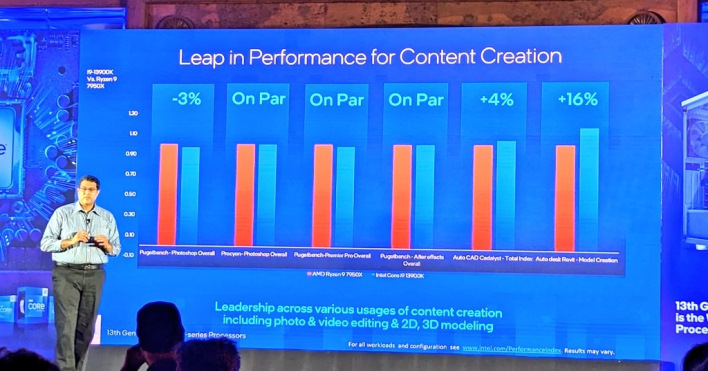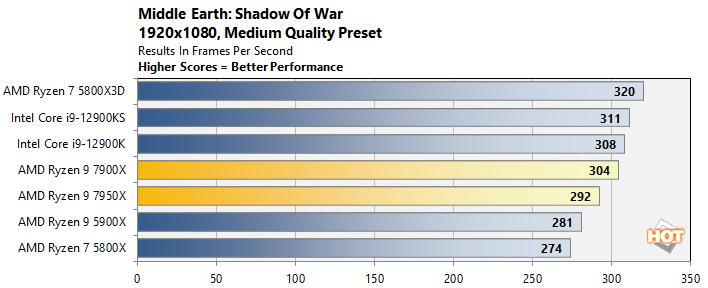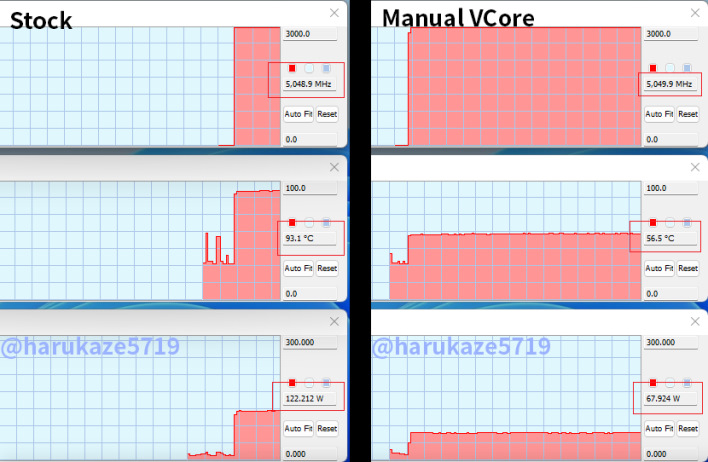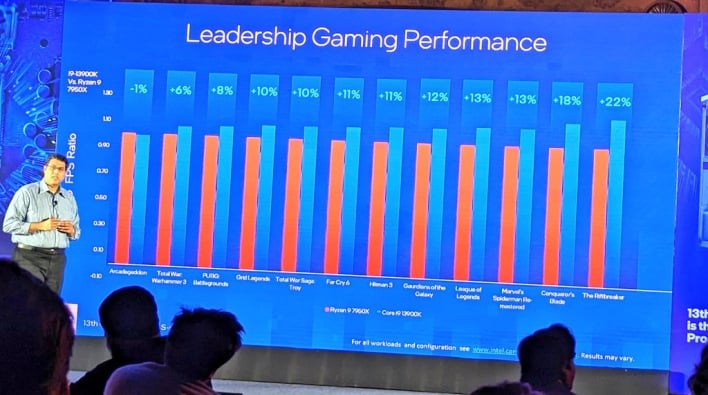A lot of folks out there who don't bleed Radeon Red are eagerly awaiting the release of Intel's next-generation
Raptor Lake processors to see how they compare against AMD's latest and greatest CPUs. We'll have those numbers for you soon™, but in the meantime, here's some leaked benchmark slides that seem to be from Intel itself.
These slides come courtesy of
Videocardz, or more accurately, one of that site's readers. The poster named "RUBY’s|RYZEN|RAYDEON RAGE 3D" dropped them in the comments on a story about the Core i9-13900KF
being overclocked. Neither us nor that site seem to know exactly where these slides were shown, but it seems to be a Raptor Lake pre-launch event, likely for retailers.
The slides, shown above, seem to indicate that Intel's 24-core CPU is competing well with the 16-core Ryzen 9 7950X in productivity tasks, and consistently outpacing it in gaming. The average gain in games is around 11%, while productivity is mostly a wash according to Intel.
We have to keep in mind, of course, that we don't know anything about how these systems were tested or what settings were used. We don't even know what graphics card was used for the testing—quite critical for comparing game performance. Still, the we think the data passes the sniff test.
Truthfully speaking, that headline probably isn't a surprise to anyone who follows hardware. The Core i9-13900K is a slightly-tweaked Alder Lake chip with extra cache, cores, and clock rate, while the Ryzen 9 7950X
already struggles to consistently beat Intel's last-gen parts in gaming workloads. Raptor Lake is faster than Alder Lake in ways that matter for games, so seeing it come out ahead isn't a big surprise.
However, in a reversal from previous generations, the new Intel parts have a lower cost of entry compared to AMD's Zen 4 offerings. With a slightly-lower upfront cost and likely a touch higher performance, it looks like Intel could recapture some mindshare among enthusiasts this year.
It's also possible that AMD's new processors could pick up significant performance from firmware updates and software optimizations. We've already seen how users can undervolt the Ryzen 7000 CPUs to drastically reduce their power consumption
without losing performance, so there's clearly tuning that could be done on AMD's side.
Whatever ends up being the case, it looks like both AMD and Intel's processors are extremely solid performers. In other words, whoever "loses" this battle, the users still win. Ain't competition great? Now let's hope AMD's new Radeons can hold their own against
Ms. Lovelace.






